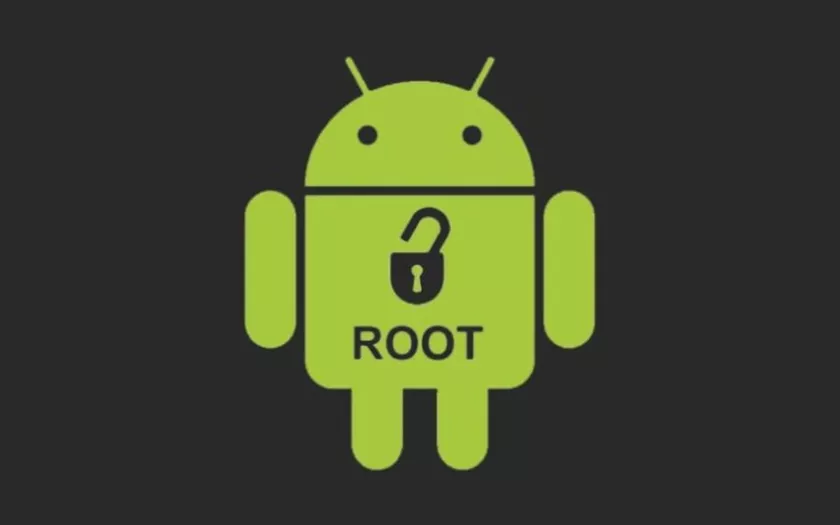For some people who have a hobbyof messing around withtheir cellphones, the term root on Android is certainly familiar to your ears. Likewise with me, since I first had an Android cellphone, root was the first thing I looked for tutorials on the internet.

What is Android Root? These are the advantages and disadvantages
However, for some ordinary people, hearing the words root an Android cellphone often makes them ‘scared’ and makes them think twice about doing it.
So, I wrote this article for the purpose of explaining to those of you who might be curious about what root is on Android and its functions, advantages and disadvantages. Hopefully, this article can help those of you who are confused about whether you should root or not.
What is Root on an Android Phone?
Rootcomes from English which, when translated into Indonesian, means root. In other words, root is a process that is carried out to penetrate the system roots of an OS (Android).
Root function on Android cellphone
As we know, the Android operating system is a Linux-based operating system that isopen source or open source. In other words, users are allowed to make changes or modifications to the Android operating system installed on their cell phones.
However, Google and smartphone manufacturers lock root access bydefault on all cell phones released to the public. The purpose of locking root access is of course various, starting from the security side so that ordinary users make the mistake of modifying or deleting important files which can result in errors,to business purposes so that users cannot delete the default applications installed on a cellphone.
Well, the main function of root on Android itself is to gain full access to the Android operating system. By having full access, users will be able to modify many things, for example deleting default cellphone applications that cannot be deleted from the settings menu.
Advantages of Root on Android Phones
Of course, there are many advantages that you will get when rootingyourAndroid cellphone, but here I will only mention 4 advantages that generally make someone decide toroottheir Android cellphone.
1. Can RemoveBloatware
Bloatwareis a term applied to default cellphone applications that cannot be removed from the settings menu.By having root access, users can more easily delete thisbloatware, thereby freeing up internal storage space.
2. Can dotweaks
Tweakis a term used when making modifications to an operating system.By opening root access, users can maketweaks,for example, to speed up processor performance and save battery power consumption.
3. Can Install Custom ROM
Custom Romis an Android operating system made by a third party which usually offers more interesting features. Witha custom ROM, you can also enjoy the latest version of the Android operating system which may not be officially available for your phone.
For example, currently, I am using a Galaxy S8 which was only given the Android 9 update by Samsung. Byrooting, I was able to install Android 10 using the Lineage OScustom room.
4. Blocking Ads
Are you bothered by advertisements that appear on your Android? Byrooting, you can install an application called AdAway which functions to block advertisements that appear in applications, games and browsers.
Disadvantages of Root on Android Phones
Behind the advantages, of course, there are disadvantages, especially for those of you who are still starting out when it comes to rooting.
1. Warranty void
In the past, Android cellphone users could casuallyrootwithout fear of losing their warranty thanks toun-root. However, as technology develops, manufacturers can now easily detect whether a cellphone has been rootedornot.
This ultimately makesun-rootingno longer useful in being able to restore the warranty of a cellphone that has beenrooted. So before youroot your Android phone, make sure you are ready to accept the risk of losing the warranty.
2. Cannot update the OS via OTA
A cellphone that hasrootaccess will not be able to get operating system updates via OTA (Over The Air). If you are confused about what an OS update via OTA is, in short it is an operating system update which usually appears in the settings menu.
So, if a cellphone has beenrooted, the cellphone can only update the operating system manually usingflash tools, ODIN or similar.
3. Vulnerable to Viruses
After all,rootingis opening access to the operating system in full. So one of the risks ofrootingis that it will make your cellphone vulnerable to viruses.
Therefore, you have to be very careful in installing applications when your cellphone isrooted, especially applications that you download from outsidethe Google Play Store.
4. Cannot use the M-Banking application
Basically, there are ways you can still use the M-Banking application on a rooted Androidcellphone. However, bydefault, the M-Banking application will not be able to open on a rooted cellphone.This is done by the Bank to maintain the security of its customer data.
To be able to open the M-Banking application on a rooted cellphone,you have to carry out several procedures for which you can search for tutorials on Google or YouTube. However, I personally recommend that you do not install the M-Banking application on a rooted cellphoneforthe sake of your data security.
So that’s more or less the discussion I want to convey regardingrooting on Android, hopefully this article can be material for your consideration if you want to do it.
